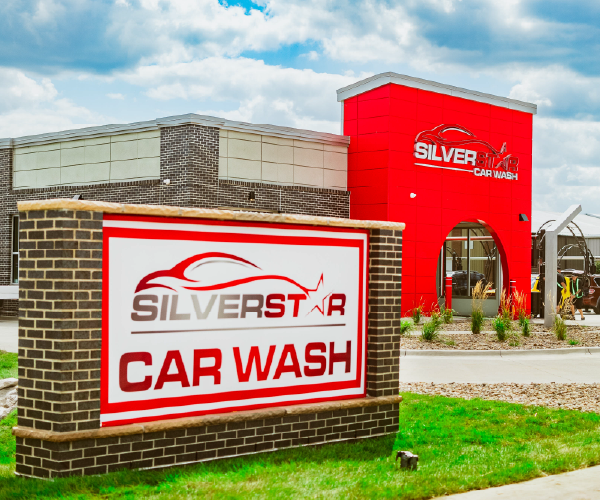
Passing the Torch
August 28, 2018
8 minute ReadIf you’re a car wash operator who envisions himself retired and on a beach in five to 10 years, then the time to start planning for that is now. That’s the message from Henry Hutcheson, president of Family Business USA, a Chapel Hill, N.C.-based consulting firm serving family businesses.
Hutcheson, author of the book “Dirty Little Secrets of Family Business: Ensuring Success From One Generation to the Next,” said small-business owners typically wait too long to plan, and underestimate the complexity of business succession, making their final days at the helm more frenzied than celebratory.
“The biggest problem people run into is that they plan late and don’t prepare for it,” he said. “With a family business, there’s a rule of thumb that 10 years out, you need to start thinking about it. Another rule of thumb came from Chris Cecil, who is part of the Vanderbilt family and runs the [wealth advisory firm] Biltmore Family Office. He said the time to start thinking about transitioning is the very moment the last transition occurs. Yeah, I just got in, but now I have to start thinking about how I’m going to get out.”
Eric Giltner, senior area manager for the U.S. Small Business Administration working in Grand Forks, N.D., said that in the next 10 to 15 years, approximately 70 percent of privately owned businesses — worth an estimated $10 trillion — will change hands, and the outlook for the next generation isn’t so great.
According to the nonprofit Family Firm Institute, 88 percent of family business owners believe the same family or families will control their business in five years, but only about 30 percent of family businesses survive into the second generation, 12 percent into the third generation and 3 percent into the fourth generation. Poor succession planning is a major reason for those high failure rates, Giltner said.
“Succession planning takes much longer than the average person realizes,” he said. “I’ve seen it over and over where a guy is a couple of years away from retirement, or maybe something has happened in the family and he needs to sell right now, and he has this vision of being able to sell the company quickly, and he’s in for a surprise.”
Learning the Ins and Outs
That long-term approach has been embraced at the Lubbock, Texas-based car wash equipment distributor Lone Star Car Wash Systems, owned by Clay and Kelli Wilson, who are both in their 40s. Only one of their three children, 25-year-old Kati Wilson Wright, is involved in the business, overseeing all of the company’s parts ordering and marketing, but they have hired her husband, Brandon Wright, 27, as director of operations. (Read a profile of Kati Wright on page 99 of this issue.)
Kati Wilson Wright said the need to plan for succession years in advance was driven home in a frightening way last October, when her parents attended the country music festival in Las Vegas where a gunman killed 59 people and wounded hundreds more. She said the idea of losing her parents reminded her that she was only one tragic day from having the business in her hands, so it’s important that she understand every aspect of it.
“I’ve been working to get a grasp of all the different services and offerings that we have as a company to better understand it as a whole,” she said. “My parents aren’t old by any means, so they’ll be working for a while, but they are trying to teach us through experience what this business is about so that when they do retire, they can either pass it down to us or we can purchase it.”
Giltner said that since the main thing that determines a business’s value is its financial performance, car wash operators planning for succession should take a close look at the bottom line and their business practices. He said many small-business owners look to show essentially no profit so they can minimize their tax obligation, but the expenses used to offset profits in the books make a business seem less successful and unattractive to potential buyers.
Giltner said one plant nursery owner he consulted had his wife’s parents on the company’s health plan, and a restaurant owner he consulted was paying his wife a $30,000 salary even though she rarely worked there.
“So, right away, there is a big chunk of money going out that went to their household, but it didn’t show profitability for the lender to be able to move on it,” Giltner said. “So, you want to take a good, hard look at all of your expenses. Maybe you no longer have to pay for six landline phones because everyone uses their cellphones. It’s important to get rid of any unnecessary expenses because the person buying the business is going to run the numbers and ask, ‘Is this thing profitable?’”
A family member or highly valued employee looking to take over the business also should get his finances in order and improve his credit score to make obtaining financing easier, Giltner said. Developing a financial plan to reduce personal expenses and build capital can make the next-generation business owner a much better bet for banks.
Management Is Key
Paul K. Richey, regional managing director of FOCUS Investment Banking LLC, which handles sales, acquisitions and financing for business investors, said the strong economy has led to increased demand for successful small businesses such as car washes. He said some private equity groups, or PEGs, are looking to roll up regional car wash chains and enter the industry in a meaningful way.
Richey said PEGs focus on three factors when evaluating a business: profitability, growth and management. Since the PEGs typically don’t have a management team ready to take over the businesses they acquire, the quality of a business’s existing management team can make or break a deal. Richey said he includes management bios in the confidential files shared between businesses and potential buyers, so car washes that lack a seasoned management team capable of replacing the car wash operator are less likely to get maximum valuation.
“Having good management is part of the package,” Richey said. “The owner who sells may be able to consult the business, but you have to have good management behind you to run the business, and you usually demonstrate that with your performance — your bottom line and your growth, whether it be growth from acquisition, opening new stores or increasing revenue from your existing stores.
“These PEGs are interested in acquiring a platform company, their first acquisition in that industry, so they want to do as big a deal as they can, someone with 10 or 20 stores, and then make smaller acquisitions. It’s supply and demand, and if there’s more demand, then in addition to the platform companies that sell, the rising tide raises all boats, and even the guy who has one or two locations should benefit.”
For car wash operators and other small-business owners, part of succession planning is accepting a reduced role in day-to-day operations, Hutcheson said. He pointed to two business partners he consulted who handled almost every aspect of their business themselves. When they said they planned to eventually either leave the business to their children or sell it, they were alarmed by Hutcheson’s response: You won’t be able to sell the business because you are the business.
“The most important thing any business owner can do to sell their business is to get themselves out of the business,” he said. “You need to get your employees running the business, and then you can stand back and say, ‘Hey, would you like to buy my business? It’s self-running. You don’t need me; I’m just giving it direction.’”
By grooming the next generation of leaders, a car wash operator can put the business in the best position to succeed after he leaves, whether the business is sold or passed on to relatives. Hutcheson said another client had three sons who each handled one aspect of the family’s small business — finances, operations and marketing.
Their father wasn’t sure who ultimately would take over the business, so well before he retired, the three sons essentially moved one chair to the left for one year, training each other in a new role. They repeated that practice the following year, moving one more chair to the left, and the result was that all three became knowledgeable about the business as a whole and were ready to step up.
Communicating with Stakeholders
In that family, everyone was aware of the business owner’s plans and participated in readying the business, which is key to maintaining harmony with so much at stake, Hutcheson said. Some business owners have no family members who are both capable of and interested in running the business, but when there is more than one possible replacement, feelings can easily be hurt.
“When you go through a transition process in a family business, it can become very heated,” Hutcheson said. “But people generally will support things that they’ve had the opportunity to have input on, even if it isn’t necessarily the result they want. When you’re making really big decisions that are affecting a lot of people, it’s important to make the stakeholders part of the process — to reach out to them and say that they’re important enough that you want them to be involved in this.
“Most times, people don’t do that because they’ve made up their minds. They know where they’re going, and they see the right answer, but they forget that the means actually do impact the ends, and you have to bring people along.”
Even if they have planned adequately, older car wash operators should avoid coasting to the finish line. Continuing to invest in new equipment, facilities maintenance, marketing campaigns and employee training will make the business more attractive to potential buyers, Giltner said.
“It’s about prepping the business to make it look new and inviting, like when you’re trying to sell your house,” Giltner said. “We recommend that they take a step back, put on some fresh paint, clean things up and make sure that the business is operating on the edge, adding new products and keeping up with the times instead of just going through the motions and waiting to retire.”
Mike Huggins, 38, who operates The Glo Car Wash in Arvada, Colo. and is a restaurateur, said older car wash operators should put some serious thought into how they will spend their newfound free time to ensure a smooth transition into retirement. Huggins, whose father, uncle and grandfather all operated car washes, said small-business owners typically have devoted much of their lives to running their businesses and might not fully appreciate the drastic change of life that follows succession.
“Most of the operators I know are really hands on, and it’s kind of a way of life,” Huggins said. “My father [Dale] still has one of his washes, and he’s definitely afraid of losing touch with the community. If he sold that wash, he wouldn’t know what to do with himself. It’s the same thing in the restaurant business. In a succession plan, the change of lifestyle can be one of the most underappreciated things.”







